Sweet or savoury, ground into flour or fermented into wine. There are lots of different ways humans consume rice but can birds eat rice too and is it safe for them?
Yes, Birds love to eat rice. It’s as much of a staple for wild granivorous birds as it is for us. Don’t be misled by the myth that uncooked grains are dangerous for birds!
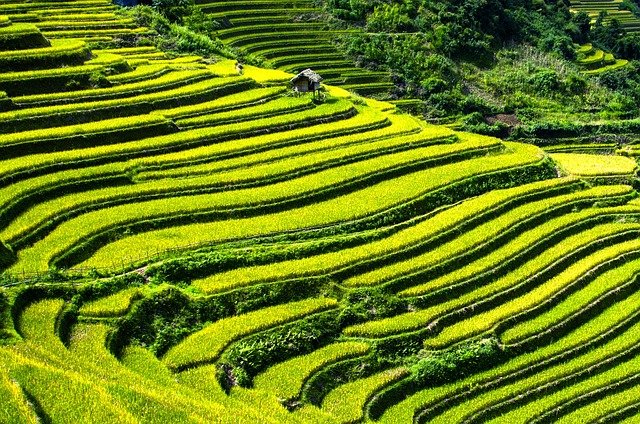
That isn’t to say that every species gives raw rice rave reviews. Pigeons and pheasants will happily peck away at dried rice straight from the bag.
But, this is an instance where many birds actually prefer what you have on your plate — and find it more nourishing as well. Still, not every preparation is avian approved.
Before you put your leftover pilaf on the bird table, take a moment to familiarize yourself with the dos and don’ts of feeding rice to birds.
How to Prepare Rice for Birds to Eat
Your first step is to choose which type of rice to purchase, and the variety can feel overwhelming.
You can buy;
- Short or long grain
- White rice or brown
- Pre-cooked
- Dry
- Seasoned
- Plain
- Rice Pudding
- Rice Crackers
- Rice Krispies
Some of these considerations are more important than others. Let’s briefly break them down:
Can Birds Eat Brown Rice?
Brown rice, which is a catch-all term used for rice of all colours that haven’t been hulled, it does have far greater nutrient density and is the objectively healthier choice.
White rice offers less, but it is still safe for birds to eat but is classed as more an ’empty carb’. If you’re buying rice especially for birds then choose the brown option…
Do Birds Prefer Long or Short Grain Rice?
Short or long-grain rice is mostly a matter of preference for the bird itself. You may want smaller grains for particularly small birds, but if the rice is cooked and soft, it shouldn’t matter.
Will Birds eat Dry Rice?
Dry rice is most appealing to larger ground-feeding birds. Others might nibble a piece here and there, but they can’t digest it efficiently and tend to ignore it.
Is it ok to Feed Birds Cooked Rice?
Pre-cooked rice — specifically the soft, microwavable kind — can be a convenient option, provided the rice is unsalted and unseasoned.
Instant rice, though technically pre-cooked, falls into the dry rice category in terms of palatability for birds.
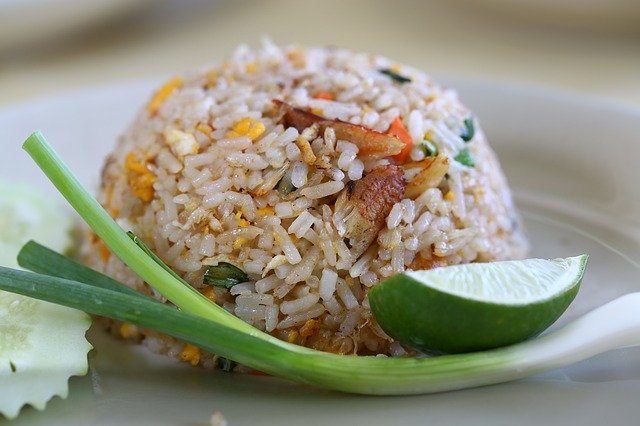
Always opt for plain rice over seasoned. Salt, sugar, seasonings and preservatives can all have negative effects on avian physiology, particularly in the amounts that we consume.
With all that said, the actual strain of rice is not especially important. Whether wild rice, basmati, sticky rice, or jasmine, they are safe for your beaked buddy.
There is always a chance a certain type won’t be to their liking, however, so experiment with different types to see what they prefer.
Once you’ve chosen your rice, prepping it is very simple. Either boil it or steam it, following the instructions on the package. Skip steps that suggest adding salt or another seasoning.
Don’t fry rice if you intend to feed it to birds! The oils and seasonings used are not good for them, and basically negate any positive aspects of this feed.
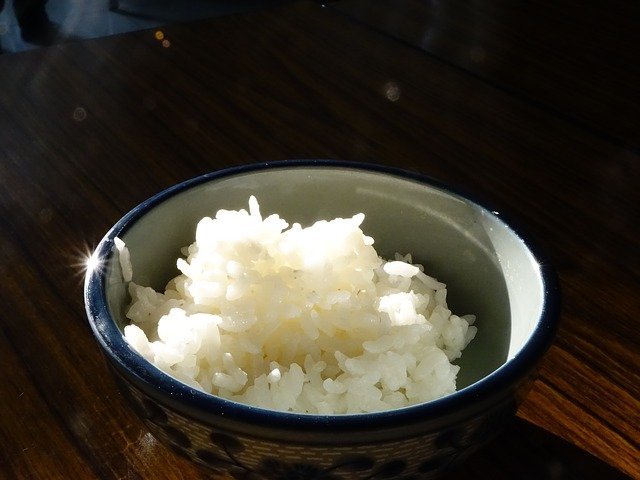
Once you have your cooked rice, add in other seeds or chopped fruit that is healthy for your bird. If you choose sticky rice, you can form the mixture into rice balls with treats hidden inside.
If you want to cook the rice and want it to last longer, you can make puffed rice. This is better than buying it from the shop as it’s usually packed with sugar and preservatives.
To make puffed rice, simply take your already cooked rice and dry it out on a cloth or paper towel. Spread it onto a baking sheet and place it into the oven for 2 hours at 50° C (125° F).
Take it out and let it cool, and you’ll have a crispy treat that will have local beaks tweeting.
Is Rice Good for Birds?
So far, I’ve stressed the fact that rice is safe for birds to eat, but is it good for them? Most of the time, the answer to this question is yes.
Rice contains many healthy vitamins, minerals, and other plant compounds that have a positive impact on a bird’s health.
Primarily, this grain serves as a source of fast energy in the form of carbs.
Try This > Hanging Bird Feeders for Small Birds
The dry weight of rice is 80% carbs, in the form of the two starches amylose (found in firmer rice, such as basmati or jasmine) and amylopectin (in softer, sticky rice).
The amylose takes longer for birds to digest, but that is actually a positive as it reduces the risk of blood sugar spikes. Besides carbs, rice contains protein, fibre, and a bit of fat.
Brown rice has a higher density of these nutrients, as they are mostly contained in the bran and germ that is removed to convert grains into white rice.
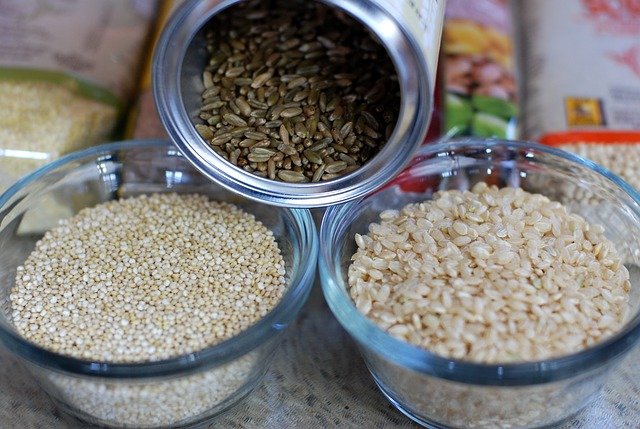
The same goes for vitamins and minerals. Without the bran, you can lose more than 90% of the rice’s nutritional offerings.
Enriched white rice rectifies this a little, with artificially added nutrients, but many micronutrients are not present, and the overall concentration is less than half that of brown rice.
What Vitamins do Birds Get From Rice?
- Vitamin B1 (thiamin)
- Vitamin B3 (niacin)
- Vitamin B5 (pantothenic acid)
- Vitamin B9 (folate)
- Vitamin E
This selection of B vitamins combines to bolster your preening pals’ ability to efficiently pull energy from food.
They also assist in the crucial tasks of forming and maintaining cells and DNA. Meanwhile, vitamin E protects cells from damage via its antioxidant qualities.
Rice also contains an array of minerals. This is the one area where the colour of the rice is telling, as red rice is particularly high in iron and zinc.
What Minerals Do Birds Get From Rice?
- Calcium
- Iron
- Magnesium
- Manganese
- Selenium
Calcium, magnesium, and manganese work together to ensure proper bone and beak formation.
Iron is essential to a bird’s stable blood oxygen level, and selenium prevents and combats chronic conditions that affect the organs.
Coloured rice, in particular, is a great source of antioxidants as well, with black rice rivalling or exceeding even blueberries with their antioxidant content.
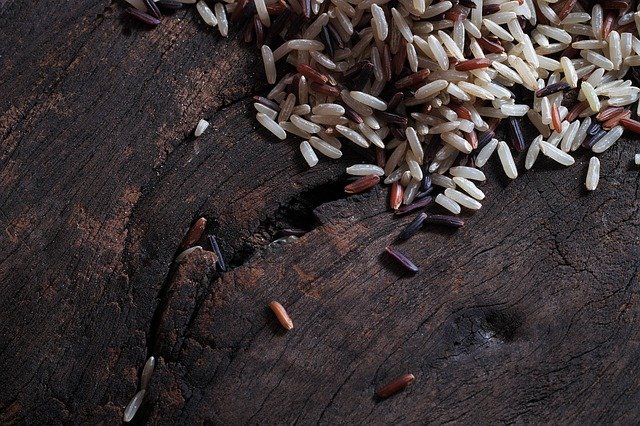
These come primarily in the form of lignans, which lower the risk of heart disease and osteoporosis, and ferulic acid, an anti-inflammatory that fights off cancer.
That said, rice has some drawbacks. The nutrients it contains are present in small amounts relative to other seeds and plant matter.
Rice is primarily carbs, so too much will leave a bird lacking vital components in its diet.
However, that isn’t the only reason to limit the amount of rice you feed them. Depending on where it is grown, rice can contain high levels of heavy metals arsenic and mercury.

This is more of a problem if the plants are grown in areas with high pollution, but it can be difficult to know where exactly your rice was grown.
Unfortunately, these contaminants are more concentrated in the bran and germ, which are also the most nutritious part of the rice.
Serving white rice drastically reduces the risk of exposure, but comes with a corresponding loss of the ingredients that make rice worthwhile to a bird.
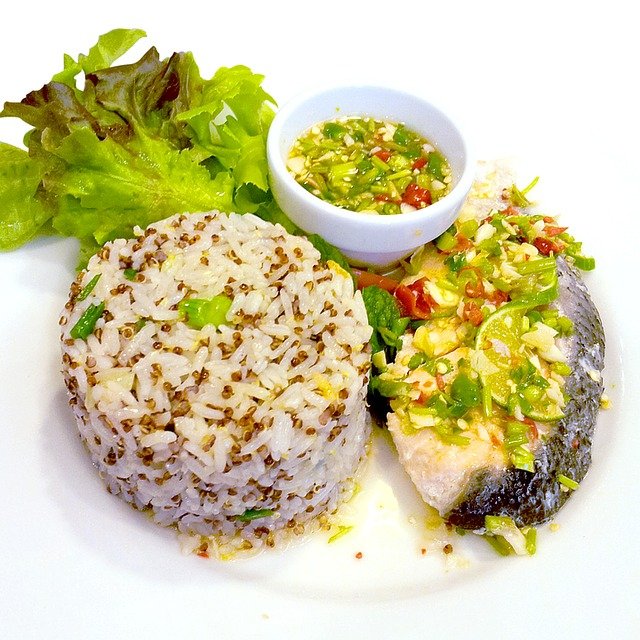
Buying high-quality rice, and limiting the amount served, are the better ways to manage this issue. Ultimately, rice is a fine addition to a balanced diet for many birds.
So long as you follow the advice on how to safely prepare it, and keep the servings small, it can play a role in keeping your feathered friends well-fed and healthy.
FAQs | Popular Searches About Birds Eating Rice
Can Budgies Eat Rice?
If you have a pet budgerigar, it is likely expressing curiosity about everything you put on your plate.
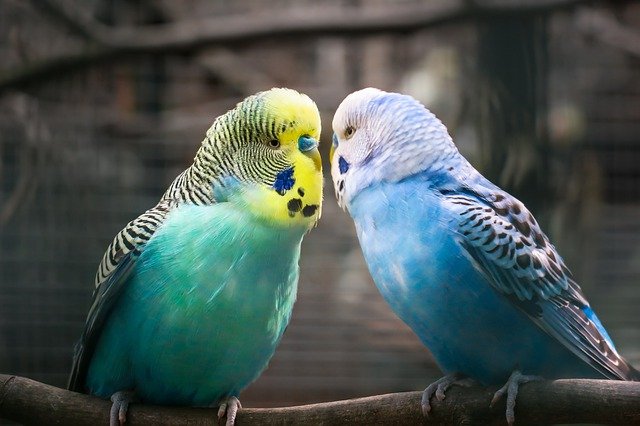
Sharing a meal with your little buddy is one of the more rewarding bonding experiences, and rice is one of the foods that is a safe choice for this.
Remember, however, to prepare your budgie’s portion separately, without seasoning. Serve them a small portion of boiled or steamed rice, preferably of the non-sticky variety.
If the rice is sticky, make sure to rinse it thoroughly after cooking. Otherwise, they could get stuck in your budgie’s tiny beak, posing a choking hazard and drawing bacteria if not promptly cleaned away.
What Birds Eat Uncooked Rice?
Many birds will eat uncooked rice when they encounter it. Most will quickly determine that the hard grains are far from an ideal food source and ignore them from then on.
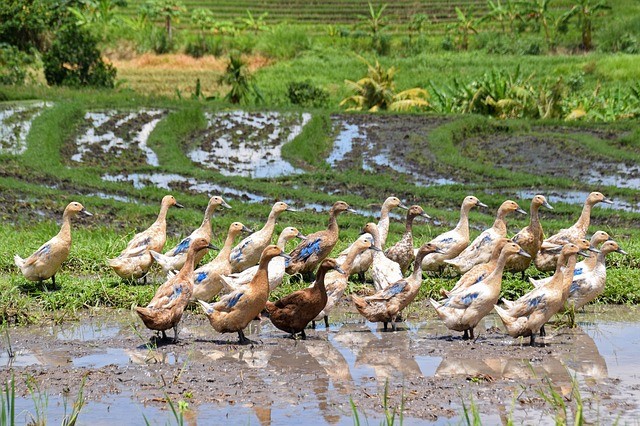
Not so for ducks, doves, pigeons, and pheasants. These birds enjoy uncooked rice and to stop larger birds from eating all the birdseed then rice is a good choice.
These birds have beaks well suited to grabbing the whole grains and are large enough to comfortably swallow them.
More importantly, their crop allows them to effectively digest such a tough meal. Uncooked rice passes through many birds only partially digested.
Can Baby Birds Eat Rice?
Baby birds are voracious eaters with specific nutritional needs. If their food is deficient in crucial macronutrients, their development can suffer in a number of ways.
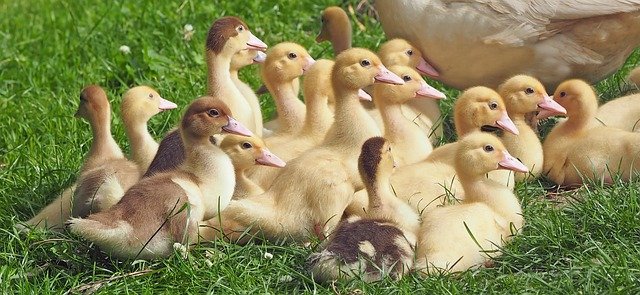
Rice is a poor choice for baby birds and should not be in their diet. It does contain useful vitamins and minerals but there are many foods with a better nutrient profile.
Protein is especially important to avian growth, and rice has an insufficient amount.
Yet, if you offer this grain to a breeding bird, chances are they will feed it to their chicks. So, avoid giving rice to birds with chicks, and opt for a more nutritious fare.